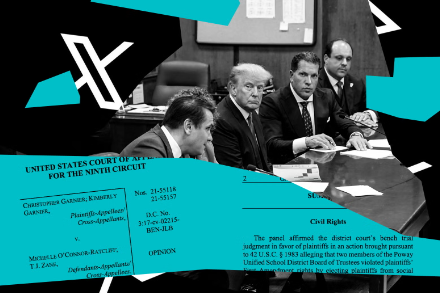The Supreme Court is gearing up to tackle a major issue concerning social media platforms and free speech. Two cases originating from Texas and Florida will soon be heard, potentially influencing how major platforms like Facebook and Twitter handle content from individuals like Donald Trump, who have spread false information about elections or incited violence.
These cases stem from actions taken by platforms to remove Trump following the Capitol riot on January 6, 2021. Trump had persistently disputed the 2020 election results without evidence and had even encouraged his supporters to rally in Washington on the day of the Electoral College vote count. The riot resulted in multiple casualties and prompted platforms to take action against Trump for violating their terms of service.
The Supreme Court’s decision could have significant implications for free speech and democracy. It revolves around whether social media platforms have the right to moderate content as private entities or should be treated as common carriers, akin to utility companies that are required to carry all speech.
Some argue that treating platforms as common carriers would undermine their ability to effectively regulate harmful content. Others believe that allowing platforms to curate content gives them too much power over public discourse. The outcome of these cases could shape the future of online communication and its impact on democracy.
Regardless of the court’s decision, the issue highlights the complex interplay between free speech, private enterprise, and the protection of democratic values. It’s a case that warrants close attention as it unfolds and could have significant implications for the digital landscape and the preservation of democratic principles.















































